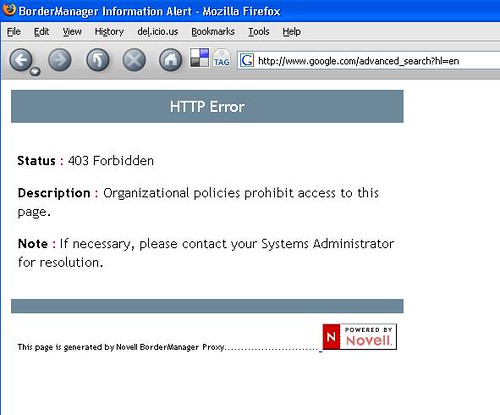
I believe in the "idea" of classroom for the future. The few things that were major concerns of mine have quickly become incredible, brain-power-consuming issues with the news that the hardware will arrive at any time. Though I'm sure people across the street (I'm sitting in my room at the high school now) are answering the tough questions, how much thought can be put into decisions in such a short period of time? Here are few of the issues that worry me:
What rights will students/teachers have over their laptops' look/feel? Example of issue: If the dock placement is interfering with what I want to do, can I change it, hide it, shrink it, or even remove the magnification feature? This is something that science teachers are currently unable to adjust on our older iBook cart. Also allowing students to have some "ownership" of the machine has been shown to reduce damage (middle school teachers in Maine found less total damage to laptops when they went pure 1-to-1 and allowed their students to take the machines home, as compared to when they shared a few laptop carts over the entire school. This is an incredible statistic considering they probably now have at least 10x the number of computers). This "ownership" can come in the form of allowing students to adjust the display setting to their liking. This sounds unimportant and trivial, but visual customization IS ownership. Look how often these kids changes their MySpace layouts.
What rights will teachers have in terms of installing useful widgets/plugins/software? Examples of issue: If a teacher has a series of photos that they want to use in class are they going to be able to download and install a simple plugin for iPhoto (awesome software) allowing them to quickly upload their photos to their flickr or picasa web album accounts? If a teacher is encouraging his/her students to use a social bookmarking site in class, are they going to run into issues when they try to install or update a del.icio.us plugin for firefox (are they even going to have firefox)? Is it possible for me to purchase iWork to use on my teacher laptop? One of the largest concerns for teachers is the amount of time it takes to learn the tools and use them effectively. If a "time-conscious" teacher knows there are ways to do things faster than they are currently allowed, they will become annoyed and eventually frustrated. I like to use the following analogy for computer use yesterday and today/tomorrow: The computer in schools used to be glorified paper, dated library, and a filing cabinet. The computer is now a library, telephone, new textbook, newspaper, journal, community center, paper and filing cabinet. That's a lot of tools to install/update periodically. I feel that educating and holding teachers accountable for responsible use and legality of software use fits with the adage, "Give a man a fish... Teach a man to fish..."
Will the current web filter loosen up? Example of issue: In teaching students information literacy, website reliability and good search technique a teacher encour
 ages students to narrow results by doing an advanced Google search. The filter blocks the ability to complete an advanced search through google. I know that the school is required by law to protect its students from content on the internet. Is it possible to protect the kids by lightening the filtering while offering more of an education on the SWSD acceptable use policy and good browsing practice? Though there is much "sketchy" content on youtube, there is also value for teachers. I realize that TeacherTube has been proposed as a fit alternative. Though it does host a lot of content, you must be a member to comment on a video. You must be 18+ years old and an educator to become a member. Therefore, videos are no longer accompanied by a conversation. These conversations provide the value in the collaborative web.
ages students to narrow results by doing an advanced Google search. The filter blocks the ability to complete an advanced search through google. I know that the school is required by law to protect its students from content on the internet. Is it possible to protect the kids by lightening the filtering while offering more of an education on the SWSD acceptable use policy and good browsing practice? Though there is much "sketchy" content on youtube, there is also value for teachers. I realize that TeacherTube has been proposed as a fit alternative. Though it does host a lot of content, you must be a member to comment on a video. You must be 18+ years old and an educator to become a member. Therefore, videos are no longer accompanied by a conversation. These conversations provide the value in the collaborative web.What will happen when a student violates the acceptable use policy? Example of issue: John visits a dirty site. The abridged technology acceptable use policy in the student handbook lists John's minimum punishment of, "Suspension of information network access." Without access to the network, John is unable to participate in class as he/she normally would. I believe that the consequences for AUP violations should be reevaluated prior to the placement of laptops in classrooms (if they haven't already been).
No comments:
Post a Comment